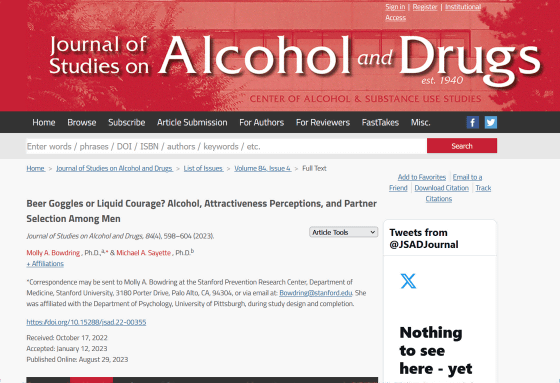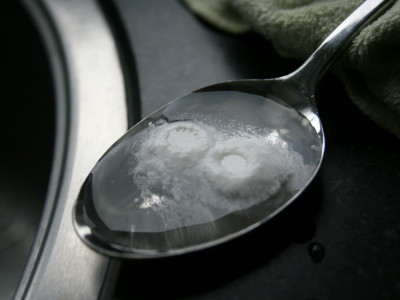Research results that `` drinking alcohol gives you the courage to approach an attractive person '' instead of `` drinking alcohol makes the other person look attractive ''

The phenomenon in which ``drinking alcohol makes people who are normally unattractive seem more attractive'' is called
Beer Goggles or Liquid Courage? Alcohol, Attractiveness Perceptions, and Partner Selection Among Men: Journal of Studies on Alcohol and Drugs: Vol 84, No 4
https://doi.org/10.15288/jsad.22-00355

'Beer goggles' study finds alcohol does not make people seem better looking | Alcohol | The Guardian
https://www.theguardian.com/society/2023/aug/30/beer-goggles-study-finds-alcohol-does-not-make-people-seem-better-looking
No evidence that 'beer goggles' are real, but 'liquid courage' is definitely a thing • Earth.com
https://www.earth.com/news/no-evidence-that-beer-goggles-are-real-but-liquid-courage-is-definitely-a-thing/
The term 'beer goggle effect' is said to have been coined by a North American university student in the 1980s, and some may have experienced this effect for themselves. However, at the time of writing, no systematic research had been conducted on alcohol consumption and evaluation of physical attractiveness, and an experiment in which ``looking at photos of other people while ingesting alcohol and evaluating their attractiveness'' had not been conducted. The results are mixed.
Therefore, Molly Bordling, a postdoctoral researcher at Stanford University School of Medicine, and her colleagues go beyond simply showing subjects a photo and asking them to rate the attractiveness of that person. We conducted an experiment that brought the situation closer to reality by making it seem like something.

In this experiment, Bordling and his colleagues invited 18 pairs of male friends in their 20s who regularly drink together to the laboratory twice, and after each visit they asked, Participants were asked to drink enough alcoholic beverages or non-alcoholic beverages to avoid intoxication. The reason why they chose friends who were drinking together in private as subjects was to imitate the social interactions that occur in real restaurants and clubs.
The researchers then showed the participants, either drunk or sober, photos of 16 people in total and asked them to rank the 16 people's attractiveness based on their appearance. The participants were also told that these were people they might meet in future research sessions, and asked to choose four people they would like to interact with in future research sessions.
The results of the experiment did not confirm that being under the influence of alcohol changes people's perceptions of other people's attractiveness. On the other hand, it was found that people were 1.71 times more likely to select someone who was in the top four in their attractiveness ranking as their ``person they wanted to interact with'' when they had consumed alcohol than when they were sober. In other words, it has become clear that drinking alcohol does not change people's evaluations of their attractiveness, but it does make them more courageous to contact people they find attractive.

The results of this study suggest that while drinking alcohol may give people the courage to make contact with attractive partners, it may also lead to harmful sexual behavior. 'If you're going to consume alcohol, it's worth thinking about how you can do it safely and in a way that aligns with your goals,' Bordling said. may be beneficial to people; the effects may seem attractive in the short term, but may be harmful in the long term.''
Related Posts:







